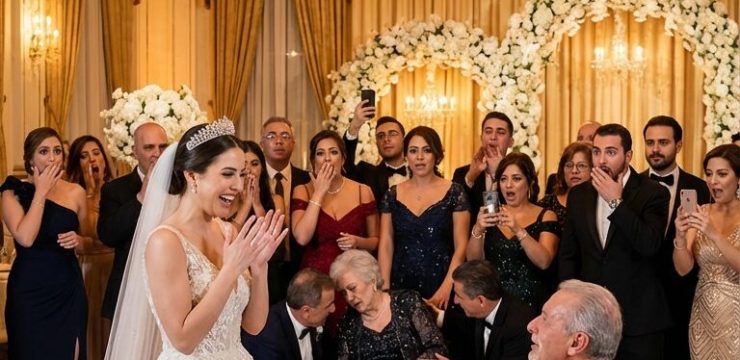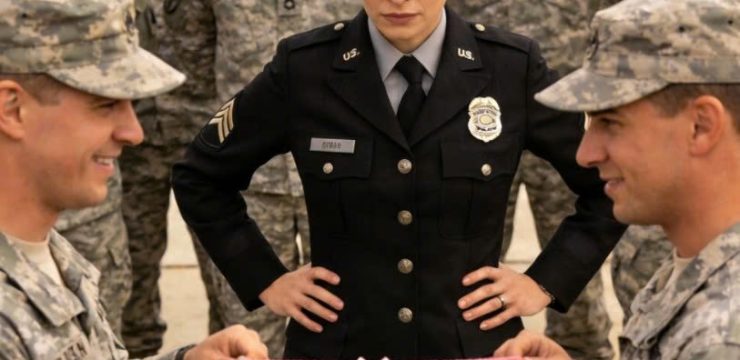I’m hard of hearing, and my best friend Riley is completely deaf. Sign language has always been a core part of who I am—it’s how I’ve expressed myself since childhood, and with Riley, it’s how we’ve built our entire friendship. That Tuesday afternoon, we met up at Hazelwood Café, our favorite little spot filled with the comforting scent of coffee and pastries.

I walked in, spotted Riley right away, her curly hair bouncing as she laughed at her phone, and took a seat across from her. We immediately began chatting in sign language, catching up on our weeks. I apologized for being late, and she joked about me trying to dodge her story about another sourdough baking fail. We were in our own world—hands moving quickly, eyes shining, laughter bubbling silently between us. It felt natural, joyful, and entirely ordinary to us. That’s when I noticed a little boy at a nearby table watching us, his eyes wide with curiosity. He looked about seven, and when I smiled and waved, he responded with an enthusiastic wiggle of his fingers, mimicking our signs. Riley noticed too and smiled, commenting on how cute he was as he tried to follow our conversation. But that sweet moment quickly turned sour. His mother, who had been glued to her phone, looked up and snapped at him to stop. She grabbed his hands and hissed, “We don’t do that—it’s rude.” My throat tightened.
We’ve experienced stares before, awkward questions, even the occasional ignorant comment. But this… this was open hostility. She kept shooting us dirty looks, as though our conversation was offensive. Then she abruptly stood, yanked her son by the wrist, and stomped over to our table. Through clenched teeth, she told us to stop “all that gesturing,” calling it distracting and inappropriate. I was stunned. I asked if she meant sign language, and she just waved her hand dismissively, saying her son was trying to eat lunch and didn’t need to watch “grown women flailing their arms.” My face flushed with disbelief and anger. Riley looked down, clearly shaken. I responded, calmly but firmly, that sign language is how we communicate and there’s nothing wrong with that. She scoffed and accused us of being dramatic, saying we should take it somewhere private.
Her son tugged her sleeve and quietly said, “Mom, stop. They weren’t doing anything wrong.” She ignored him and continued ranting about how people like us were ruining society by expecting “special treatment.” I tried to stay composed. “We’re not asking for anything from you. We’re just having a conversation.” The café had gone quiet, every nearby table now paying attention. Riley sat still, sensing the tension in the air. Then, like a breath of fresh air, James, one of the café’s servers and someone we saw often, walked over with his usual calm but firm demeanor. He asked if there was a problem, and the woman launched into a tirade, demanding we be asked to leave. James didn’t flinch.
“Ma’am, the only person disturbing this café is you,” he said. “Sign language is not disruptive. But berating people for how they communicate is.” She was speechless. He continued, “We welcome all guests here. We do not tolerate discrimination of any kind.” A soft round of applause started at one table, spreading through the café until nearly everyone joined in. Red-faced, she grabbed her son’s arm and muttered, “Come on, Nathan. We’re leaving.” But Nathan hesitated. He looked back at us, then stepped forward. Slowly, carefully, he signed, “I’m sorry. She’s wrong.” Tears welled in my eyes. Riley signed back, “Thank you. You did nothing wrong.” Then he asked, “How do you sign ‘friend’?” Riley showed him, gently guiding his hands. He mimicked her, smiling proudly before his mom dragged him out the door. The moment lingered like a warm echo. James returned with two cookies and said, “These are on the house. I’m sorry that happened.” I looked up at him, genuinely touched. “You didn’t have to say anything, but thank you.” He nodded and quietly added, “My sister’s deaf. I get it.” Riley reached across the table, her hand gently squeezing mine. “You okay?” she signed. I nodded. “Because of you. Because of James. Because of that brave little boy.” The café slowly returned to normal. A few strangers smiled as they walked by, and one older woman leaned over and whispered, “Your language is beautiful. Thank you for sharing it.” We finished our cookies in peace, feeling more seen than judged. Outside, the sun was warm as we lingered on the sidewalk, not quite ready to say goodbye. “Same time next week?” Riley signed. “Of course,” I smiled. “No matter who’s watching.” As I walked to my car, I thought of Nathan—his open mind, his kindness, and his small, powerful act of resistance. We might not change everyone, but with every conversation, every moment of connection, we plant seeds. And one day, those seeds might grow into a world where no one is told their language makes others uncomfortable.





